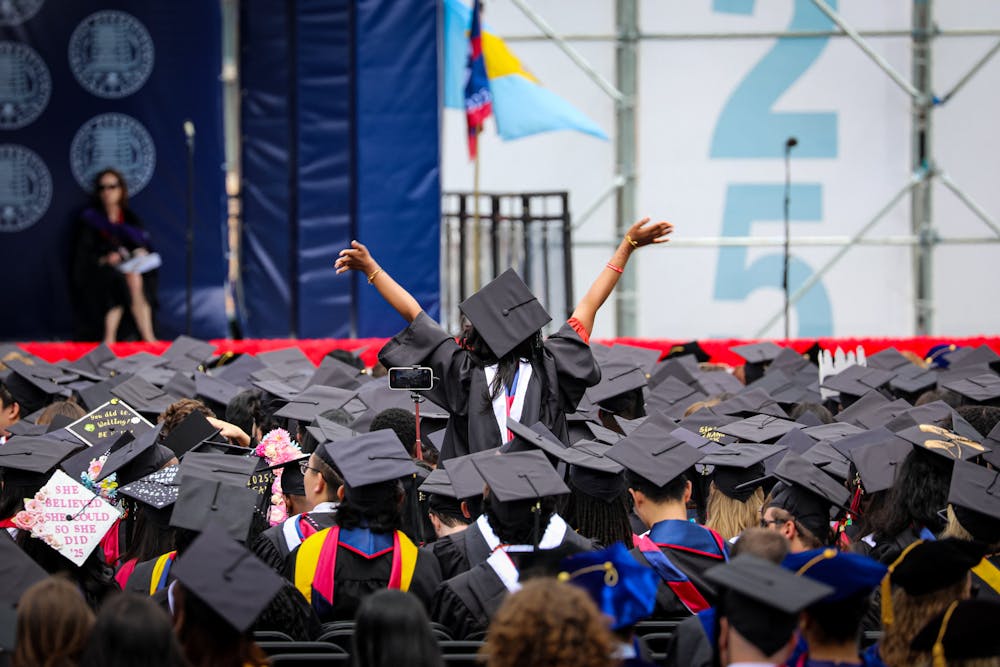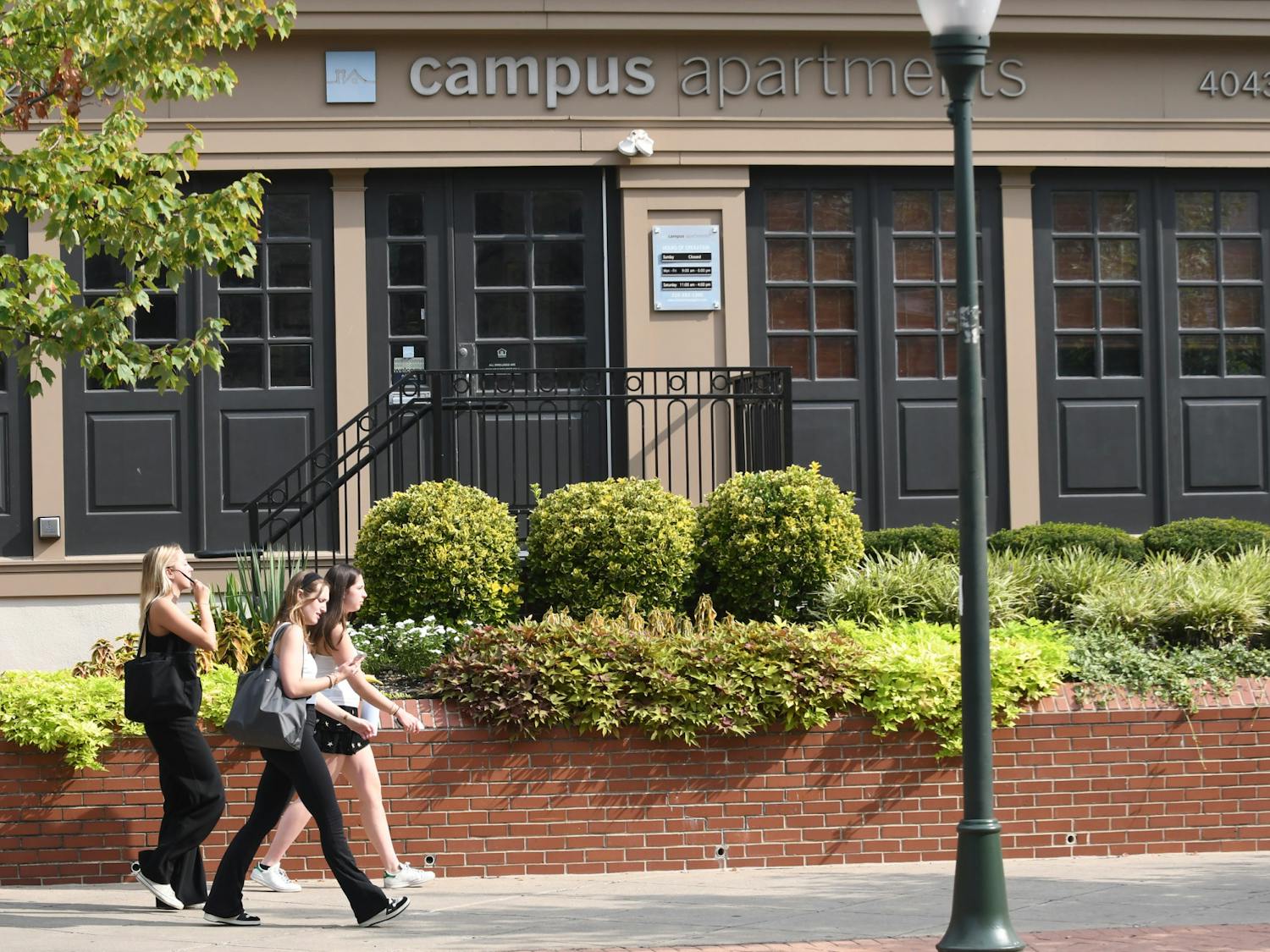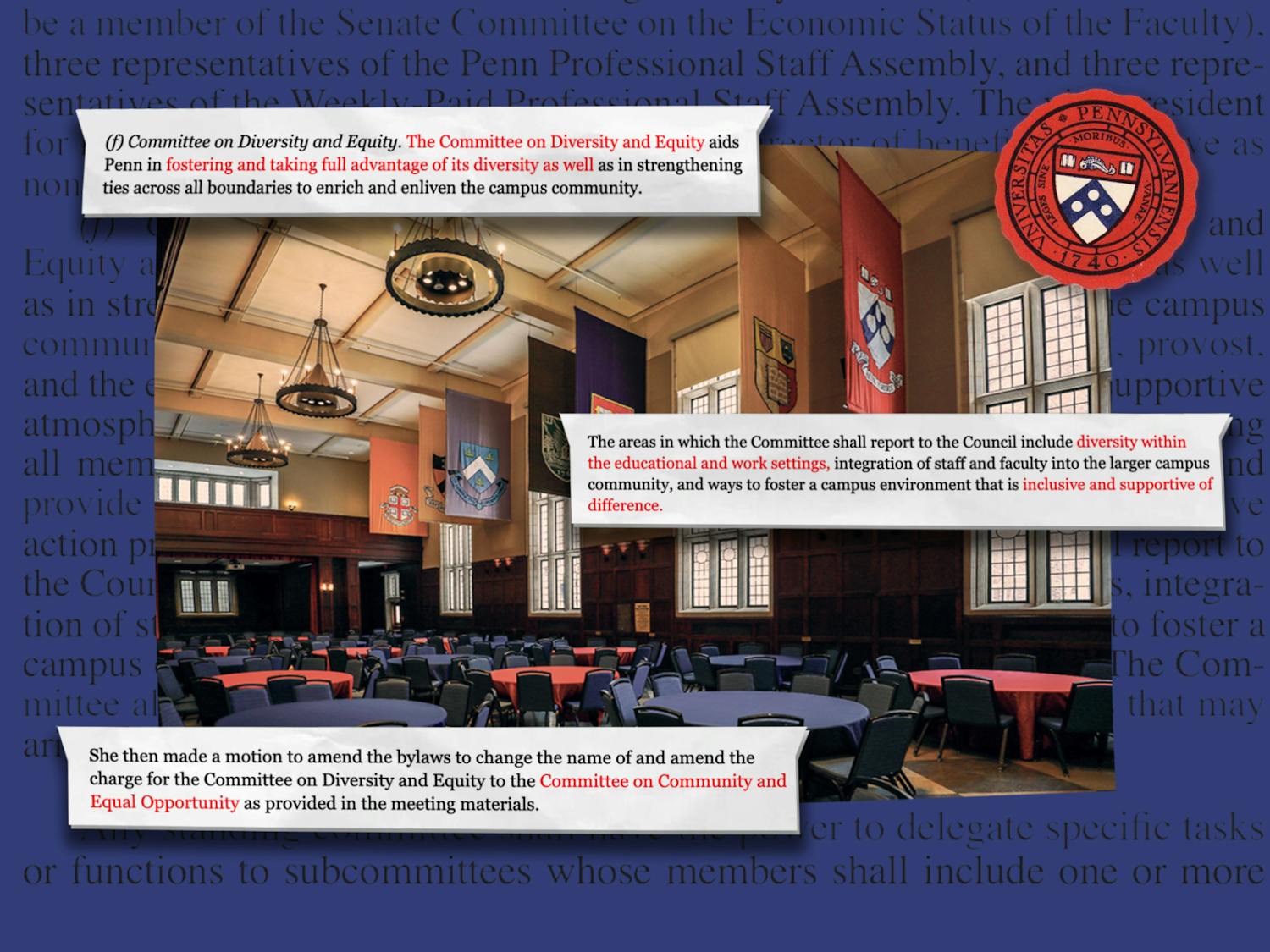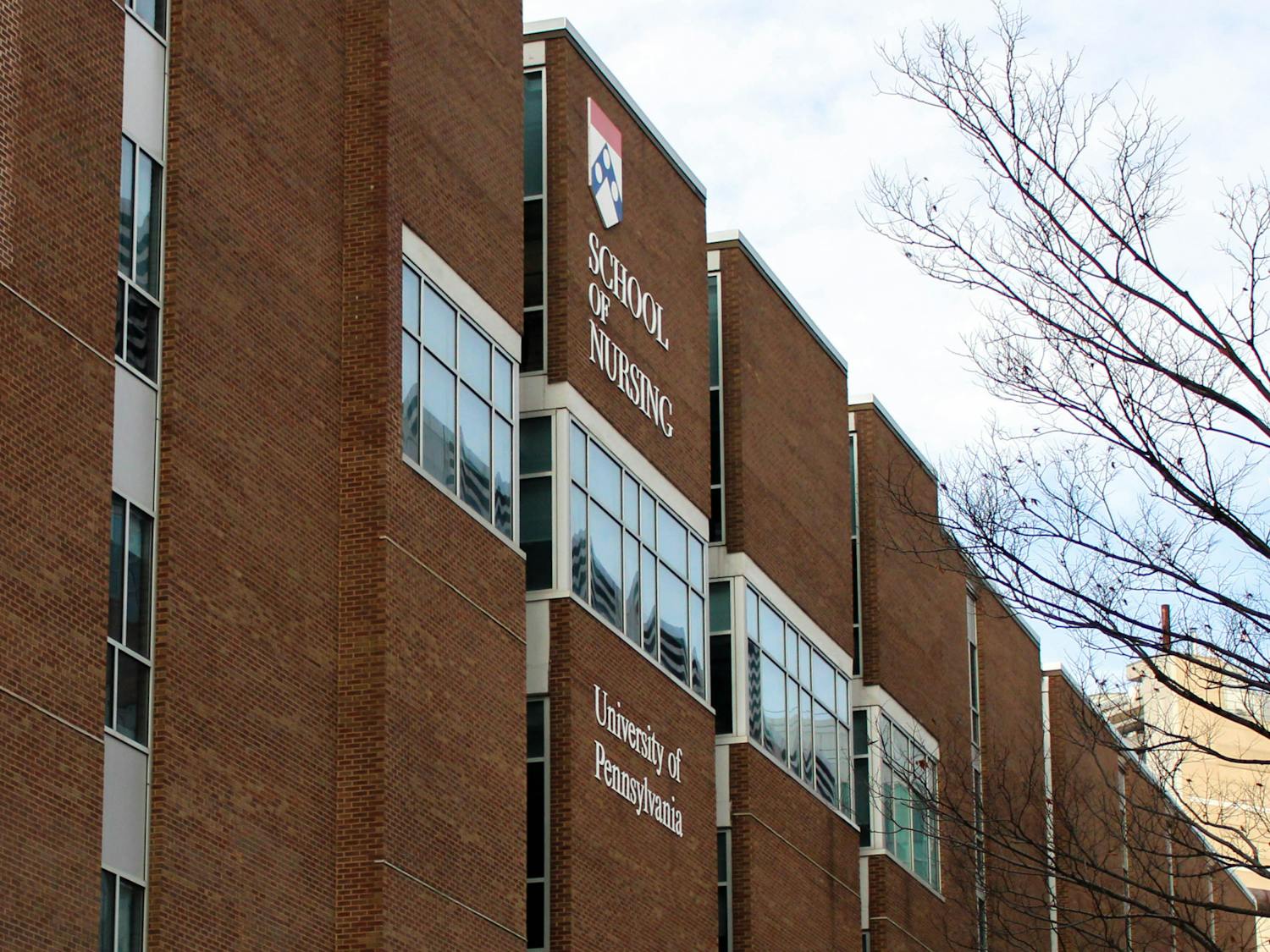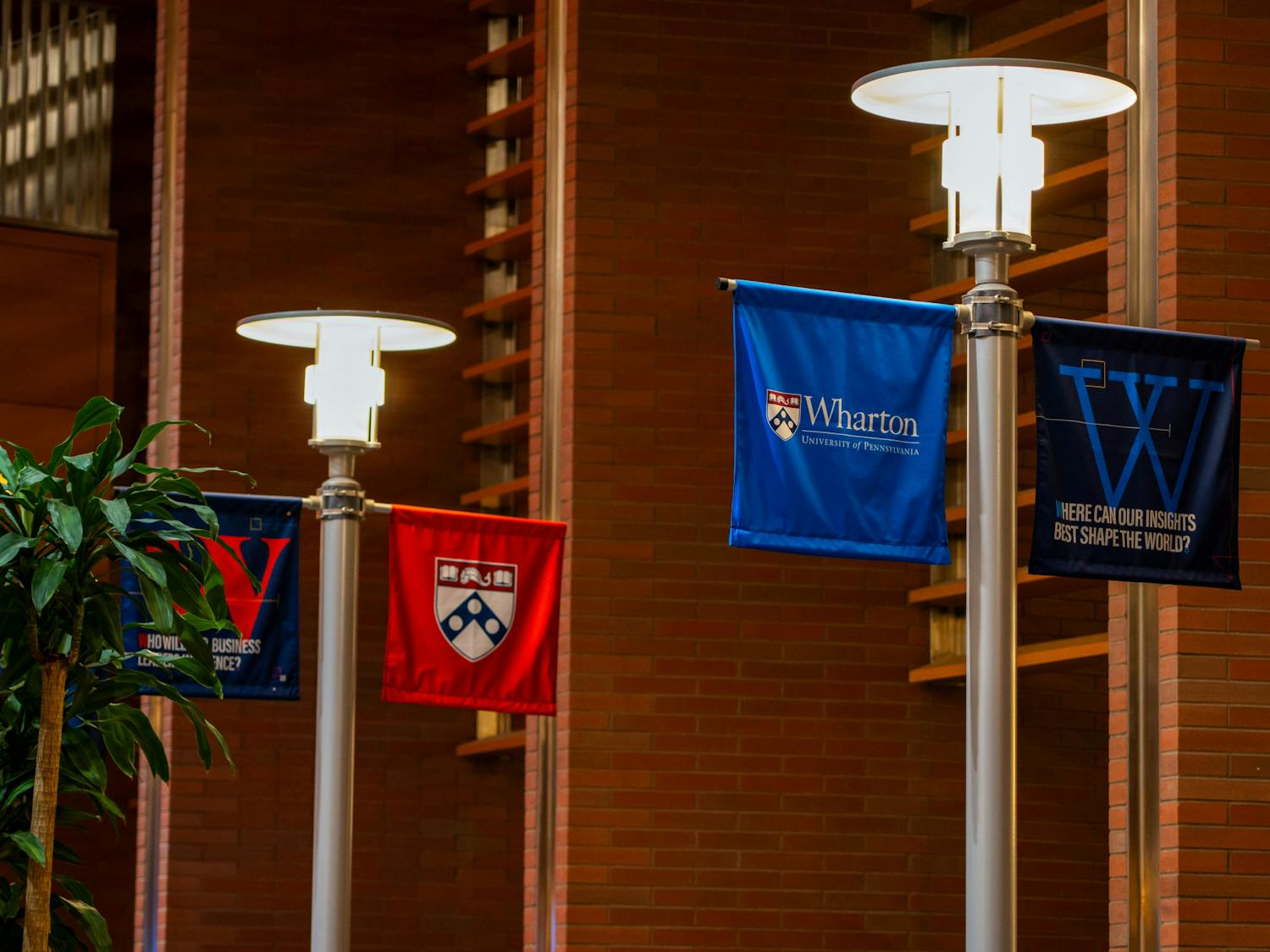Graduates of the Class of 2025 gathered for the University’s 269th Commencement ceremony on Monday morning, signaling the end of a year marked by mounting pressure on higher education institutions.
Approximately 6,000 graduate and undergraduate students arrived at Franklin Field around 10:15 a.m. after taking part in a procession from Penn Park. The ceremony featured remarks from Penn President Larry Jameson and this year’s Commencement speaker, 1996 College graduate Elizabeth Banks, an award-winning actress, producer, and film director.
After assembling in Penn Park on Dunning-Cohen Champions Field, graduating students took part in a procession that featured ceremonial bagpipers, the Penn Band, and school and alumni flags. University Vice President and Secretary Medha Narvekar led the procession and carried the University Mace, a staff designed to resemble maces of medieval knights.
Board of Trustees Chair Ramanan Raghavendran opened the ceremony, followed by the national anthem sung by 2025 Wharton graduate Carlee Reid. University Chaplain Charles Howard led a prayer, as well as a reflection on the meaning of the national anthem during "global, national, and … personal challenges."
Jameson then greeted the graduating class, marking the end of his first academic year since his permanent appointment in March.
"When the world and the ground is shifting under our feet, how do we find our footing?" Jameson asked. "From wildfires to wild innovations, the lessons are clear: in volatile times, when the pressure is on [and] when stakes are high, adapting creatively can make a huge difference."
After a year that saw Penn in the political spotlight, Jameson acknowledged multiple University breakthroughs, including Penn Medicine researcher Carl June's CAR-T cell therapy.
Jameson also emphasized three "essential characteristics" of the graduating class — curiosity, creativity, and self-improvement — which he described as Benjamin Franklin's founding principles for the University.
RELATED:
The Graduation Issue 2025: Relive the Class of 2025’s four years at Penn
The Graduation Issue 2025: How national politics shaped Penn this year
Following Jameson's remarks, Provost John Jackson, Jr. recognized those who received academic honors and distinctions, including graduates who were inducted into academic honor societies, won school and departmental awards, and were granted fellowships.
Faculty Senate Chair-Elect and history professor Kathleen Brown encouraged students to "hold onto the hope that the world can become a more just and better place."
As the daughter of a "single mother [who] faced the challenges of poverty and unemployment" and relied on the "federal welfare programs of the 1970s," Brown reflected on her "own improbable journey to this immense podium."
"You need to make the world a better place," Brown said. "You need to listen to and learn about others. Listening carefully, however, does not mean accepting what is said uncritically."
Brown urged the graduating students to "continue to raise challenging questions and to upend old wisdom."
Four honorary degree recipients were celebrated along with the graduating Class of 2025. This year’s recipients included the Smithsonian Institution’s 14th secretary Lonnie Bunch, former inaugural chair of Penn’s Africana Studies department Barbara Savage, Harvard Mallinckrodt Professor of Physics and of Applied Physics Lene Hau, and Banks, who delivered the main commencement address.
"Like my career and our economy, this commencement speech will be a little all over the place," Banks said. "But I am a Penn success story."
Banks discussed the need for students to "pursue anything and everything that scares [them], with absolute vigor." She noted, however, the difficulty of navigating a world full of "income inequality, climate change, and fascism straight up."
While explaining how "failure is a great motivator," Banks highlighted the importance of contributing to the "pie" of jobs and opportunities. She described how working to expand opportunities for all led to profound changes, such as equal pay for equal work. She also stressed that "there's still a lot of work to do," pointing to unemployment rates among federal workers and the fight to "keep abortion legal."
"Your generation must root out and continue to solve the real problem in this world," Banks said. "And let me tell you, it has nothing to do with the color of our skin, the ability of our bodies, the gender on our birth certificates, or what religion we practice — and everything to do with money. The real division in this country — in this world — now more than ever, is economic."
Banks discussed the importance of having "agency" as an adult and reminded graduates that the decisions made when faced with conflict "clarify who you are and what you value in this world."
"Congratulations, Quakers," Banks concluded. "And may the odds be ever in your favor."
Following Banks’ address, the deans of Penn's 12 undergraduate and graduate schools conferred degrees to students, followed by closing remarks from President Jameson. According to data from Penn’s Office of Institutional Research and Analysis — compiled as of May 4 — 9,865 diplomas were issued, with some students receiving more than one degree.
RELATED:
The Graduation Issue 2025: Relive the Class of 2025’s four years at Penn
The Graduation Issue 2025: How national politics shaped Penn this year
Finn Ryan is a News Editor at The Daily Pennsylvanian and can be reached at ryan@thedp.com. At Penn, he studies English and political science. Follow him on X @FinnRyan_.


